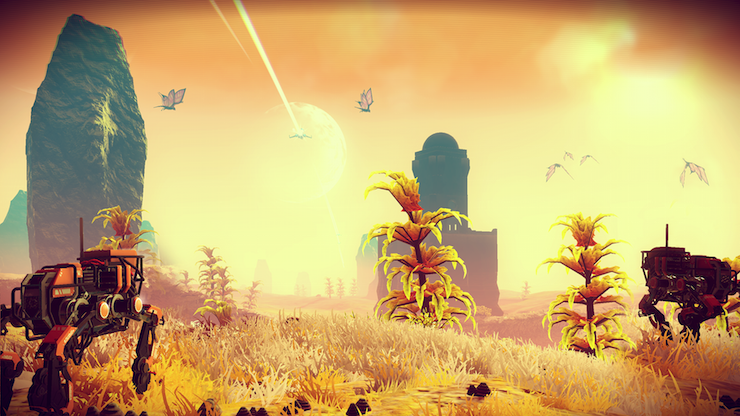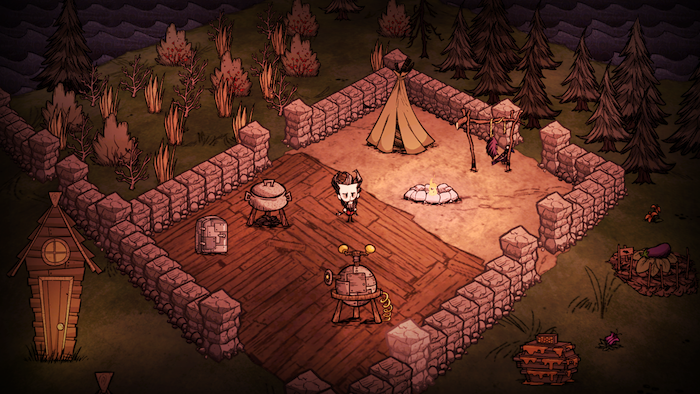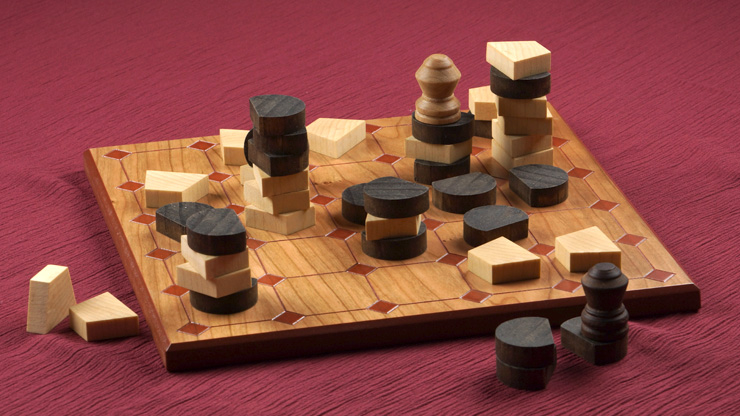A few months ago, I wrote a couple posts connecting feminist science fiction and feminist SF criticism to the field of feminist game studies as a way of thinking through the ways feminist game studies might draw from the practices enacted in the field of feminist science fiction in order to similarly work to dismantle hegemonic, patriarchal discourse and in order to reimagine more inclusive futurities.
This discussion came back to mind for me after reading Naomi Alderman’s “Dystopian Dreams: How Feminist Science Fiction Predicted the Future.” Alderman begins her exploration of feminist SF by pointing out the fact that Margaret Atwood’s The Handmaid’s Tale “is about to become a television drama” and this forthcoming series reminds Alderman that Atwood’s novel feels “timely, dealing as it does with reproductive rights, with the sudden accession to power of a theocracy in the United States…But then, feminist science fiction does tend to feel fresh—its authors have a habit of looking beyond their particular historical moment, analysing the root causes, suggesting how they might be, if not solved, then at least changed.” To be sure, this desire for change drives feminist work in general, but Alderman highlights the ways feminist SF especially works to explore “the idea that there are other ways of living which are equally valid, equally worthy of respect, equally troubling and equally beautiful. That other cultures and modes of existence make sense on their own terms. That however you’ve grown up, it would always be possible to do things differently. And having seen that, one can’t help reflecting on what the world would be like if we did decide to do things radically differently.” And this effort to imagine things “radically differently” (as I’ve mentioned in previous posts) is what drives feminist science fiction because it “asks insistently, through careful construction of different societies, how much of what we think now…is innate in the human species and how much is just invented. And if we’ve invented it then could we, for better or worse, invent it differently?”
Such invention can result, Alderman continues, in the kinds of dystopias that works like The Handmaid’s Tale construct, and these dystopian imaginings can function as a way of commenting on the idea of utopia as well—and this is because “[u]topias and dystopias can exist side by side, even in the same moment. Which one you’re in depends entirely on your point of view.” That is to say, Alderman argues, that conceptions of utopia and dystopia function in tandem:
Every utopia contains a dystopia. Every dystopia contains a utopia. The conclusion I’ve come to through extensive speculative fiction voyaging is that the best we can hope for, probably, is to create a society that tries hard not to leave people out. And to be vigilantly alert to the people we are leaving out, whoever they are. To listen. To try to make it right as often as we can. To imagine how it could be different.
Alderman’s discussion of the relativity of utopia and dystopia brings to mind a moment in The Handmaid’s Tale in which Offred says, “Freedom, like everything else, is relative.” And this makes me think about the ways feminist thought engages with the idea of freedom—the freedom (to reiterate Alderman’s line of thinking) of not being left out, of being listened to. The freedom to make things right, to imagine things differently. The freedom to survive.
Because, indeed, these things aren’t just the goals of feminist science fiction; these things aren’t just articulated through and sought after in the ways feminist SF works to imagine things differently. Rather, such (re)imaginings, such survival, it seems to me, is the goal of feminist thought and praxis overall. As such, this all also brings to mind the connections these implications might then have for the field of feminist game studies. That is, how does this discussion—of feminist SF, of dystopias and utopias, of freedom and survival, of imagining things radically differently—speak to and open up a conversation regarding the goals and efforts that occur within the space of feminist game studies? What can those of us who engage in this kind of work in the field of games perhaps take away from all this?
Perhaps it’s that feminist game studies works to claim and create a space in the gaming community—a space that actively works to ensure that people aren’t left out, that people are listened to. That feminist game studies works as part of a network of feminist thought and activism to imagine things differently and to make things right. That feminist game studies works to imagine feminist futurities based on survival. I’m reminded, now, of something else that Offred says in The Handmaid’s Tale: “By telling you anything at all I’m at least believing in you, believe you’re there, I believe you into being. Because I’m telling you this story I will your existence. I tell, therefore you are. So I will go on. So I will myself to go on.” Perhaps, then, the goal—of feminist science fiction, of feminist game studies, of feminist work overall—is to tell each other our stories, to believe each other into being. To will each other into existence.




